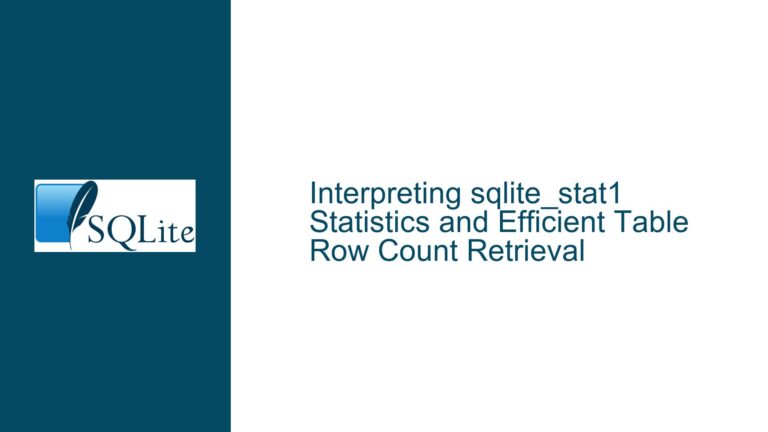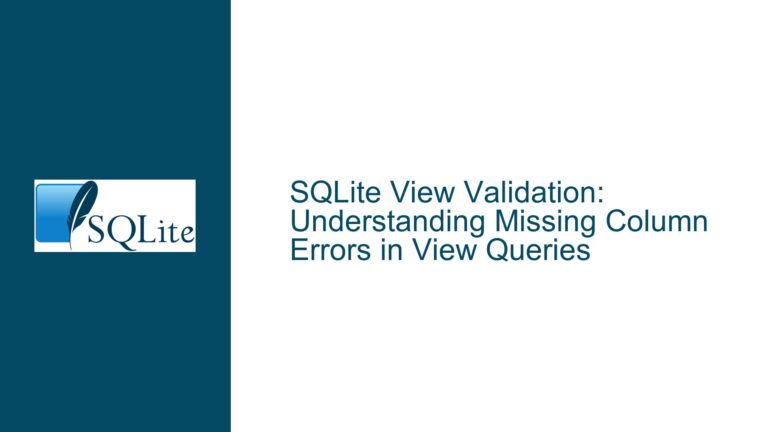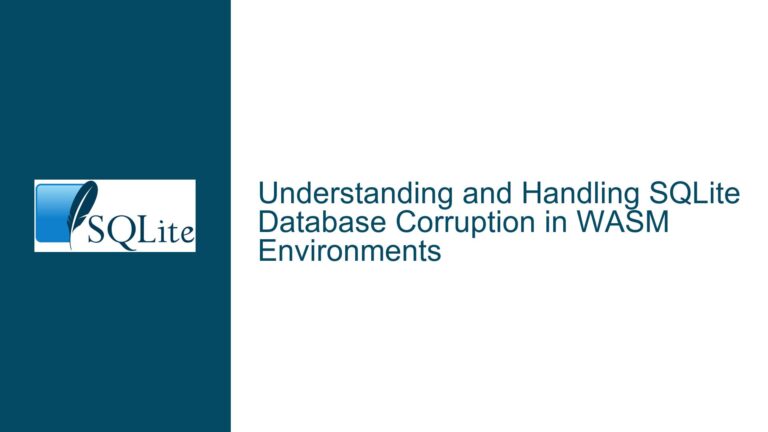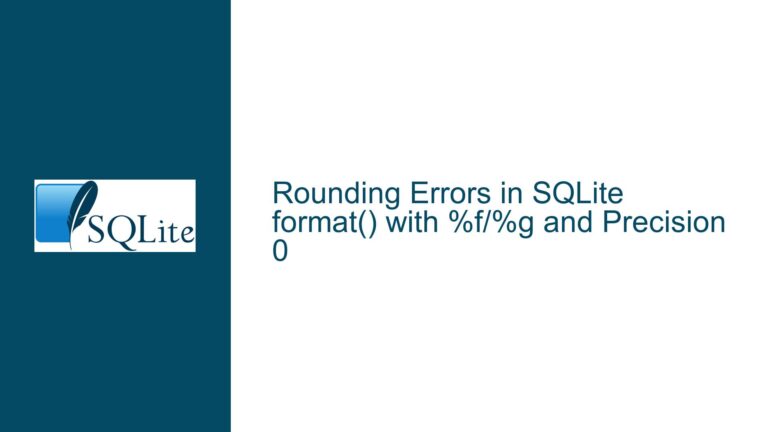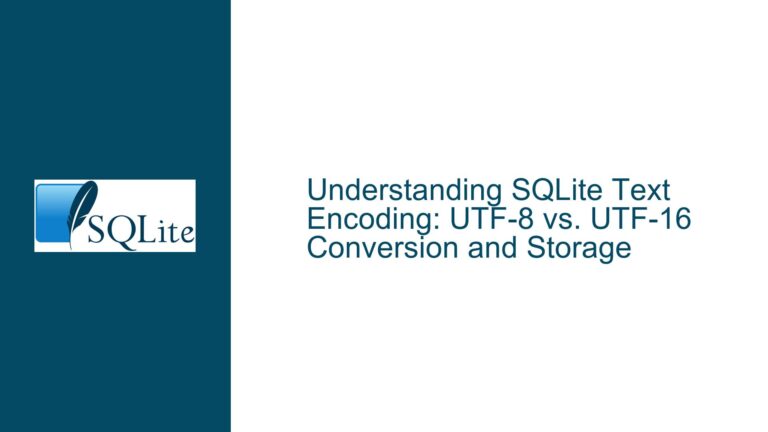Interpreting sqlite_stat1 Statistics and Efficient Table Row Count Retrieval
Understanding sqlite_stat1’s stat Column and Row Count Ambiguity The sqlite_stat1 table is a critical component of SQLite’s query optimization infrastructure. It stores statistical metadata about tables and indexes, which the query planner uses to estimate the cost of different execution paths. This table has three columns: tbl (the table or index name), idx (the name…
